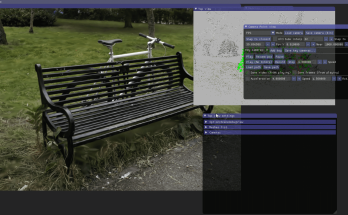The virtual reality (VR) industry is rapidly evolving, opening up new vistas for business and investment. As VR technology progresses, its applications are expanding beyond gaming into sectors such as education, healthcare, real estate, and more, creating a burgeoning market ripe with opportunities. This article delves into the current economic landscape of the VR industry, examining market growth, investment trends, and emerging sectors that promise substantial returns.
Market Analysis: Current Size and Growth Projections
The VR market has shown remarkable growth over the past few years, with significant acceleration due to technological advancements and increased consumer interest. According to market research, the global VR market was valued at several billion dollars as of 2021 and is projected to grow exponentially by 2028. This growth is fueled by both the consumer and commercial sectors, where VR is used for gaming, training simulations, educational content, and virtual meetings.
The consumer electronics segment, especially VR headsets, continues to be a major driver of market growth. However, software development and content creation are seeing increased investments as businesses strive to offer unique and immersive experiences to users. The integration of AI with VR, offering more personalized and interactive environments, is also a significant factor contributing to market expansion.
Investment Trends: Capital Flow within the VR Industry
Investment in VR is soaring, with venture capital (VC) firms, private equity, and corporate investors pouring funds into startups and established companies focusing on VR technology. VC funding in the VR sector has multiplied, targeting companies that are innovating in both hardware and software solutions. Major tech companies are also heavily investing in R&D to develop or improve their own VR products.
There’s a notable trend towards strategic partnerships and acquisitions, as larger companies aim to integrate VR technology with their existing products or to enter the VR space strongly. These investments are not only a testament to the potential of VR but also signal growing confidence in its future market viability.
Emerging Sectors: New Business Opportunities
As VR technology matures, new sectors within the industry are emerging as potential gold mines for business and investment. One such sector is virtual events, which have gained significant traction due to global shifts toward remote interaction. Virtual reality offers a dynamic and interactive alternative to traditional video conferencing, providing a “real” presence at events like concerts, conferences, and trade shows.
Another promising sector is VR in education and training. Educational institutions and corporations are increasingly adopting VR to enhance learning and training environments, making them more interactive and effective. VR simulations allow for complex surgical procedures, mechanical repairs, and other training modules to be practiced in a risk-free, controlled environment, dramatically reducing training costs and improving outcomes.
Expert Opinions: Future Market Directions
Industry leaders are optimistic about the future of VR, envisioning a world where VR technologies become a part of daily life. Experts predict that as VR becomes more mainstream, there will be a significant expansion in its applications, potentially impacting nearly every industry. They also foresee improvements in VR hardware, such as lighter, wireless headsets with longer battery life, which will make VR more accessible and user-friendly.
Additionally, as 5G technology becomes more widespread, its integration with VR is expected to enhance the user experience by allowing high-speed, real-time interactions in virtual environments. This could revolutionize fields such as telemedicine, remote work, and real-time collaborative projects.
The VR industry is at a pivotal point, with vast potential for growth and innovation. As technology advances and more sectors recognize and integrate VR applications, the scope for business and investment in this field will only expand. For investors and businesses, staying informed about technological advancements and market needs will be key to capitalizing on the opportunities that VR presents. The future of VR promises not only enhanced virtual experiences but also substantial economic benefits for those ready to invest in this evolving landscape.








